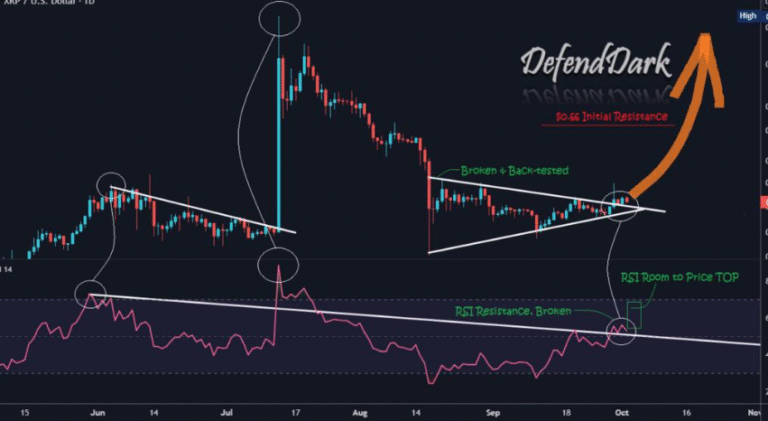Choosing a Custom Smartphone Manufacturer for Your Unique Needs
Introduction
In today’s highly competitive digital world, innovation and differentiation are key to success. Smartphones have become essential tools for both personal and professional use, and the demand for tailored mobile devices is growing. This growing interest has fueled the rise of the custom smartphone manufacturer — a solution for individuals and businesses looking for mobile devices built around specific requirements. Whether it’s for brand identity, unique hardware, or enterprise-level functionality, a customized smartphone offers flexibility and purpose that mass-produced models can’t match.
Understanding What Custom Smartphone Manufacturing Means
A custom smartphone manufacturer designs and produces mobile phones based on a client’s specifications. Instead of offering a general-purpose smartphone, the manufacturer provides a solution aligned with individual or business needs. This includes not just cosmetic changes but deeper modifications such as internal hardware components, software systems, branding, security protocols, and connectivity features.
Companies seeking private-labeled phones, industries requiring robust secure devices, or startups launching niche products often rely on these specialized manufacturers to develop one-of-a-kind mobile solutions.
Who Can Benefit From Customized Smartphones?
Business Enterprises
Corporate organizations are one of the primary customers of custom smartphone solutions. These businesses often require devices pre-installed with company software, encrypted communication apps, and restricted access to ensure employee productivity and data security.
Healthcare Industry
Hospitals, clinics, and medical technology firms are integrating mobile solutions into their systems for real-time monitoring, digital records, and staff communication. Customized smartphones help create a device ecosystem that is secure, HIPAA-compliant, and optimized for medical environments.
Law Enforcement and Emergency Services
First responders, military personnel, and law enforcement agencies need devices that are durable, secure, and capable of functioning under pressure. A custom smartphone manufacturer can produce devices with rugged exteriors, satellite communication support, and advanced GPS tracking — features unavailable in standard phones.
Tech Startups
Startups entering the mobile market may want to bring an original product to life. Partnering with a custom smartphone manufacturer allows them to prototype and manufacture devices without needing to invest in their own production facilities.
Luxury Brands
Luxury companies often expand their branding into tech. Collaborating with a manufacturer allows them to design smartphones with premium finishes, high-end materials like leather or precious metals, and exclusive UI themes matching the brand’s image.
Customization Options in Smartphone Manufacturing
Hardware Customization
Clients working with a custom smartphone manufacturer can specify nearly every aspect of the physical device. This includes:
- Screen size and display type
- Processor and memory configuration
- Camera specifications
- Battery capacity
- Body materials and colors
- Rugged or waterproof design
These choices ensure the phone functions exactly as needed, whether it’s for everyday office work or field operations in extreme conditions.
Software Customization
Software is often the most critical component in a customized phone. Manufacturers can modify:
- Operating system (Android, AOSP, Linux-based, etc.)
- Custom UI/UX designs
- Pre-installed apps and security features
- Access permissions and user role configurations
- Encrypted storage and communication systems
This type of customization is ideal for organizations requiring strict control over their digital infrastructure or looking to introduce unique user experiences.
Branding and Packaging
Brand visibility is another advantage of working with a custom smartphone manufacturer. Companies can opt for:
- Company logos printed or engraved on the device
- Customized boot logos and interface themes
- Unique retail packaging for product launches
- QR-coded identity tags or serial numbers for inventory management
This level of branding strengthens recognition and creates a consistent professional image.
See also: Predicting the Next Big Thing in Tech
The Manufacturing Process
1. Requirement Analysis
The process begins with detailed discussions between the client and the manufacturer. Requirements such as hardware preferences, software goals, user expectations, and pricing are analyzed.
2. Design and Prototype
Next, design teams create concept visuals and digital blueprints. A working prototype is developed to test design, software integration, performance, and user interface.
3. Testing and Feedback
Once the prototype is finalized, it undergoes functional and stress testing. Clients are encouraged to provide feedback, and adjustments are made as necessary.
4. Mass Production
After approval, the manufacturer begins production. Quality control is enforced during assembly to ensure every unit meets agreed-upon standards.
5. Shipping and After-Sales Support
The completed smartphones are packaged and delivered. Post-sales support such as technical assistance, firmware updates, and device management tools are typically included.
Key Factors to Consider When Choosing a Manufacturer
Experience and Reputation
It is essential to select a custom smartphone manufacturer with proven experience. Check previous projects, client testimonials, and years in the industry to evaluate reliability.
Technical Capabilities
Ensure the manufacturer has the right technological resources. This includes skilled engineering teams, supply chain management, and access to advanced hardware components.
Compliance and Certification
Smartphones must meet regulatory standards. Ensure the manufacturer can obtain required certifications such as CE, FCC, and ISO to sell or distribute the product legally.
Scalability
Whether you need 500 or 50,000 units, the manufacturer should be capable of scaling production according to your growth.
Cost Transparency
Discuss all expenses upfront. Good manufacturers provide clear pricing for R&D, prototyping, testing, tooling, packaging, and post-sales support.
Confidentiality
For startups and innovators, confidentiality is critical. The manufacturer must be willing to sign NDAs and maintain strict IP protection policies.
Challenges in Custom Smartphone Development
Higher Initial Costs
Unlike mass-produced devices, custom phones require a significant investment upfront, especially during prototyping and initial setup.
Longer Lead Time
Designing and developing a unique product takes more time. Businesses must plan for a longer development cycle compared to simply ordering existing phones.
Compatibility Risks
If not properly managed, integrating specific hardware and software can lead to performance issues. Choosing an experienced partner can help mitigate this.
Future Outlook for Customized Smartphones
As industries become more digitized and users demand personalized solutions, the relevance of custom smartphone manufacturers will only grow. Trends like foldable screens, embedded biometric systems, blockchain-powered apps, and AI-based personalization are shaping future demands.
Companies that embrace customization will not only differentiate themselves but also gain strategic advantages in branding, functionality, and user satisfaction.
Conclusion
A smartphone should not be a one-size-fits-all solution. Whether it’s for business security, brand identity, or product innovation, a custom smartphone manufacturer offers unmatched opportunities to create devices built specifically for your goals. By partnering with the right manufacturer, you gain control over design, performance, and usability—making your smartphone as unique as your vision.






